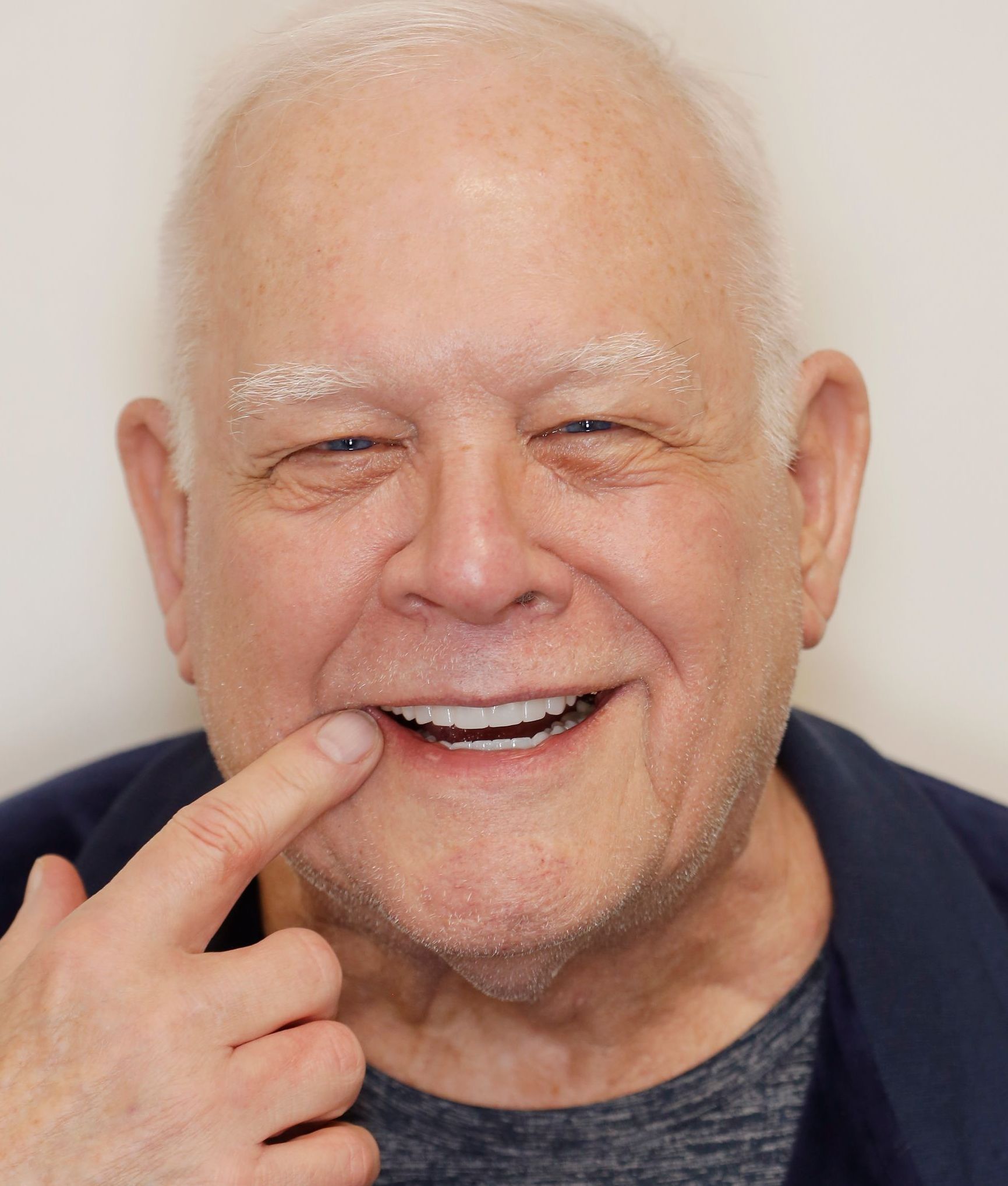How Long Do Veneers Last? Complete Lifespan Guide
Veneers typically last 10 to 15 years, but this can vary a lot based on the type you choose and how well you take care of them. Porcelain veneers can last up to 20 years with proper care, while composite veneers usually last 5 to 7 years.
If you're thinking about getting veneers, you want to know they'll give you a beautiful smile for years to come. This guide will help you understand everything about veneer lifespan, what affects how long they last, and how to make them last as long as possible.
Types of Veneers and Their Lifespans
Porcelain Veneers: The Gold Standard
Porcelain veneers are the most durable option, lasting 10 to 15 years on average, with some lasting up to 20 years when properly cared for. Recent studies show that 95.5% of porcelain veneers survive for 10 years, making them an excellent long-term investment. Research published in the Journal of Clinical Medicine confirms these impressive survival rates.
These veneers are made from high-quality ceramic materials that closely match your natural teeth. They resist stains better than other options and maintain their beautiful appearance for many years. While they cost more upfront, their longer lifespan often makes them more cost-effective over time.
Composite Veneers: Budget-Friendly Choice
Composite veneers typically last 5 to 7 years, though they can last up to 10 years with excellent care. These are made from tooth-colored resin material and offer a more affordable option for smile makeovers.
The main trade-offs with composite veneers are that they chip and stain more easily than porcelain. However, they're easier to repair if small damage occurs, and they require less tooth preparation.
No-Prep Veneers: Minimal Tooth Alteration
No-prep veneers like Lumineers can last up to 10-20 years according to manufacturers, though real-world results may vary. These ultra-thin veneers preserve more of your natural tooth structure since they require minimal or no enamel removal.
Popular brands include Lumineers, Vivaneers, and DURAthin veneers. They cost between $800 to $2,000 per tooth and offer a more conservative approach to smile enhancement.
What Affects How Long Veneers Last
Your Oral Health Habits
Good oral hygiene really matters. Twice-daily brushing and daily flossing are crucial to prolonging the lifespan of veneers. The American Dental Association recommends regular dental checkups and cleanings every 6 months to maintain both natural teeth and dental restorations.
While veneers can't get cavities themselves, the teeth underneath them can. Poor oral hygiene can lead to decay around the edges of veneers, which can cause them to fail early.
Use a soft-bristled toothbrush and non-abrasive toothpaste to clean your veneers gently. Regular flossing keeps your gums healthy and prevents gaps from forming between your gums and veneers.
Your Eating and Drinking Habits
What you eat and drink plays a big role in veneer longevity. Hard foods like ice, nuts, and hard candies can chip or crack veneers. Like normal teeth, veneers are susceptible to staining, so avoid eating and drinking tooth-staining foods and beverages, such as coffee, tea, red wine, and blueberries.
Tips for protecting your veneers:
- Cut hard foods into smaller pieces
- Use a straw when drinking staining beverages
- Rinse your mouth with water after eating or drinking
- Avoid chewing on ice or hard objects
Teeth Grinding and Clenching
If you have a habit of teeth grinding or clenching (bruxism) you might experience premature wear and tear on your veneers. According to the National Institute of Dental and Craniofacial Research , teeth grinding affects many people and can cause serious damage to both natural teeth and dental restorations. Wearing a nightguard can protect your veneers and natural teeth from damage.
Teeth grinding puts tremendous pressure on veneers and can cause them to crack, chip, or become loose. Many people grind their teeth at night without realizing it, so ask your dentist about signs of grinding during your regular checkups.
Physical Activities and Sports
If you play a contact sport, be sure to wear a mouthguard to protect your veneers from chipping or breaking. Direct impact to your mouth can damage veneers just like it can damage natural teeth.
A custom-fitted mouthguard provides the best protection. This is especially important for activities like football, basketball, hockey, or martial arts.
Quality of Veneer Placement
High-quality materials and proper placement ensure veneers adhere securely and last longer. A skilled dentist minimizes the risk of misalignment or bonding failure.
The experience and skill of your dentist plays a huge role in how long your veneers last. Proper tooth preparation, precise veneer placement, and high-quality bonding materials all contribute to longevity.
At Smile Essentials , our experienced team uses advanced techniques and materials to ensure your veneers last as long as possible.
How to Make Your Veneers Last Longer
Daily Care Routine
Taking care of veneers is similar to caring for your natural teeth, but with a few special considerations:
Morning and Evening Care:
- Brush twice daily with fluoride toothpaste
- Use a soft-bristled toothbrush to avoid scratching
- Floss daily to prevent gum disease
- Use alcohol-free mouthwash
Things to Avoid:
- Don't use your teeth as tools to open packages
- Avoid biting your nails or chewing on pens
- Don't bite into extremely hard foods
- Stop smoking, as it can stain veneers
Regular Dental Visits
Routine dental visits are critical for monitoring the condition of veneers and addressing any potential issues early. Your dentist can spot small problems before they become big ones.
During these visits, your dentist will:
- Check for signs of wear or damage
- Clean areas you might miss at home
- Polish your veneers to maintain their shine
- Assess your bite to ensure even pressure
Protective Measures
Night Guards : If you grind your teeth, a custom night guard is essential. Whether you're an active sports player or a habitual teeth grinder at night, wearing a dental guard can help to prevent the erosion of the porcelain in your veneers.
Sports Guards : For any contact sports or activities where your mouth might get hit, wear a protective mouthguard.
Dietary Adjustments : Patients are advised to cut harder foods into smaller pieces and avoid chewing on non-food objects.
Signs Your Veneers Need Replacement
Visual Changes
If your veneers show visible cracks, discoloration, or gum recession, it may be time for a replacement. Other signs include:
- Chips or rough edges
- Loose or shifting veneers
- Staining around the edges
- Sensitivity or pain
Functional Problems
Sometimes veneers develop problems you can feel rather than see:
- Changes in your bite
- Food getting stuck in new places
- Sensitivity to hot or cold
- Sharp edges that cut your tongue
Age-Related Wear
Even well-maintained veneers show wear over time. Most patients do need to replace their veneers at some stage. Porcelain veneers generally last up to 12 years, while composite veneers may last around 8 years.
Cost Considerations and Value
Initial Investment vs. Long-Term Value
While porcelain veneers cost more upfront, their durability means fewer replacements over time, making them the more cost-effective option in the long run.
Porcelain Veneers : $925 to $2,500 per tooth Composite Veneers : $250 to $1,500 per tooth No-Prep Veneers : $800 to $2,000 per tooth
Replacement Costs
When planning for veneers, consider future replacement costs. If you get composite veneers at age 30, you might need 3-4 replacements over your lifetime. Porcelain veneers might only need 1-2 replacements in the same timeframe.
Latest Research on Veneer Durability
Recent Studies Show Excellent Success Rates
In a study published in 2024, 7.2% of patients who wore veneers experienced some degree of failure, such as cracks and loose sections. However, 99% of veneers that were confined to just the enamel didn't experience any issues. This research, documented in peer-reviewed dental literature , highlights the importance of proper tooth preparation and staying within the enamel layer when placing veneers.
Long-Term Survival Rates
Studies have shown that up to 95% of veneers remain functional after 10 years, with a survival rate of approximately 85% at 15 years. Research published in the National Center for Biotechnology Information shows that porcelain veneers last around ten years on average, but can often survive intact for between fifteen and twenty years.
Failure Patterns
The results of the present review indicated that dental veneers generally have a high survival rate (>90% for more than 10 years). The amount of preserved enamel layer plays a paramount role in the survival and success rates of veneers.
The most common reasons for veneer failure are:
- Structural issues like wear and cracks
- Debonding or loss of retention
- Changes in gum line over time
- Tooth decay underneath the veneer
Comparing Veneers to Other Options
Veneers vs. Crowns
Crowns typically last longer than veneers (15-30 years) but require more tooth removal. Veneers are more conservative and better for cosmetic improvements, while crowns are better for severely damaged teeth.
For more information about the differences, check out our guide on crowns vs. veneers .
Veneers vs. Teeth Whitening
Professional teeth whitening is less expensive but temporary, typically lasting 1-3 years. Veneers cost more but provide longer-lasting results and can fix multiple cosmetic issues at once.
Veneers vs. Dental Bonding
Composite bonding is the most affordable option but typically lasts only 3-7 years. Veneers last longer and provide better stain resistance and durability.
Making the Right Choice for Your Smile
Consider Your Lifestyle
Think about your daily habits when choosing veneer type:
- Active lifestyle or contact sports : Porcelain veneers with a night guard
- Heavy coffee/wine drinker : Porcelain for stain resistance
- Budget-conscious : Composite veneers with the understanding they'll need more frequent replacement
- Want minimal tooth alteration : No-prep veneers
Work with Experienced Professionals
The success of your veneers depends heavily on the skill of your dental team. At Smile Essentials, we specialize in cosmetic dentistry in Denver and have extensive experience creating beautiful, long-lasting smiles.
Our in-house lab allows us to maintain strict quality control and customize each veneer for optimal fit and appearance.
Final Thoughts
Veneers can transform your smile for many years when you choose the right type and take proper care of them. Porcelain veneers offer the best longevity at 10-20 years, while composite veneers provide a budget-friendly option lasting 5-10 years.
The key to maximizing your veneer lifespan is excellent oral hygiene, regular dental visits, protective gear when needed, and working with an experienced cosmetic dentist.
Ready to explore your veneer options? Schedule a complimentary consultation with our team at Smile Essentials. We'll help you choose the best veneer option for your lifestyle, budget, and smile goals, ensuring you get the longest-lasting results possible.














